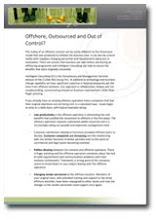‘Skills, skills, skills’ – or rather the lack of them – remains the burning issue from 2014 that is set to continue causing challenges for employers in the year ahead.
Although the economy is slowly growing, predictions are that across the board in 2015 industries will experience an all-too-familiar reaction of turning on the ‘pilot light’ to recruit positions quickly in line with expansion, but at what cost?
A recent CBI Employment Trends Survey has highlighted businesses concerns about skills shortages as the biggest threat to UK competitiveness for the first time in 17 years, with worries about regulation a close second.
It is expected to remain so for the near future.
At the time the CBI released their report, Katja Hall, CBI Deputy Director-General, said: “Businesses across all sectors have identified raising productivity and addressing skills shortages as crucial to ensuring the recovery continues and is felt by all.
“It’s a concern that the UK’s growing skills gap is now seen as the number one workforce threat to the long-term health of its economy. Companies and the Government need to work together to find ways to develop skills within the workforce and help employees move into higher skilled and better-paid jobs.”
Alongside this insight, there is also growing recognition that forecasting demand within businesses urgently needs to be addressed and that key individuals responsible for recruitment need support to move away from this ‘pilot light’ mentality.
This is especially important around times of significant change, such as when new legislation is introduced late and when a business needs to quickly launch new projects or initiatives.
While these may be understandable consequences, there are other ways of planning ahead that create more sustainability both within organisations and within the talent market itself.
Given that, particularly at higher levels, there are only so many people with specific sets of skills in the market, for example, in organisational change, competition becomes fierce for these individuals and companies regularly pay over the odds for people who may not be right for the job in hand.
Ultimately, this ‘turning on and off’ process creates a vacuum effect that results in far lower ‘skills’ versus ‘demand’ ratios. In fact, the situation can be so severe that recruiters and employers now universally agree that we need to find candidates from outside UK borders.
Chief executive of RSG Mike Beesley said: “Disruption caused by what can be seen as ‘feeding frenzies’ often gives recruitment a bad name and allows unscrupulous contractors and agencies to exploit the situation financially.
“Businesses can avoid these types of scenarios by better planning and forecasting but it has been shown that despite strong aspirations to achieve this it is extremely difficult to implement, especially within large institutions.
“In response to this some of our customers have been taking advantage of a number of our services to overcome these challenges.
“The increased use of pre-screening, talent pooling, contractor interviewing and selection built in to resource-on-demand solutions allow customers to get ahead of the curve and ensure that when the resource demand comes they are ready for it. We also have a division of the business dedicated to providing these solutions and allowing the customers to remain agile in the market.”
Over the longer-term, it is also essential that businesses and influential people within them recognise that it is never too early to start engaging with young people letting them know about the opportunities on offer to help them in the future.
In fact, many business are already taking this seriously.
RSG is also doing its bit through its own Training Academy and the company has actively signed up to the Recruitment and Employment Confederation’s (REC) Youth Employment Charter and has a programme of outreach and activity planned for 2015 to ensure we are helping as many young people ‘skill up’ and get work ready as possible.
Kate Shoesmith, Head of Policy at the REC, said: “Employment levels are at an all-time high, and our latest data shows that 80% of employers are planning to hire more permanent staff in 2015. At the same time, the UK is suffering from skills shortages across the economy, so the priority must be to make sure that businesses are able to recruit the talent they need.
“That means making it easier for businesses to employ workers from overseas and the UK remaining part of the EU. At home, we need to focus on improving our education and training system so that the next generation is equipped with the kinds of skills employers need. The next government needs to deliver on these areas if the UK is to build the best jobs market in the world.”







No comments:
Post a Comment